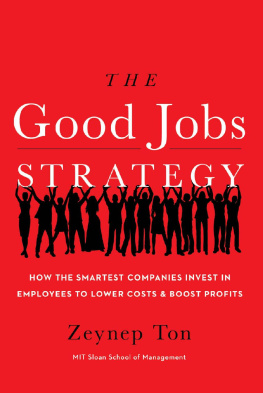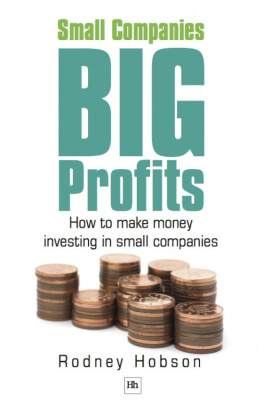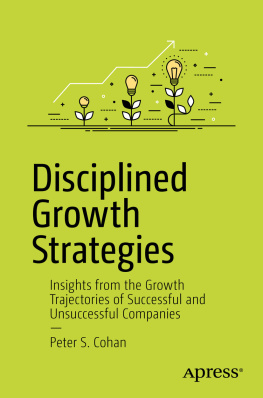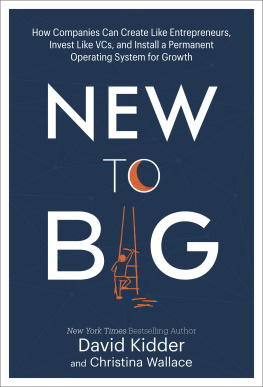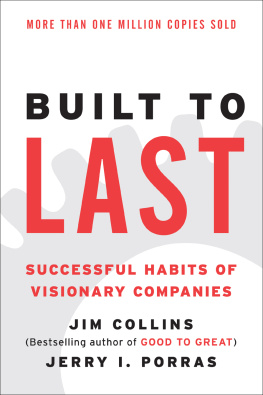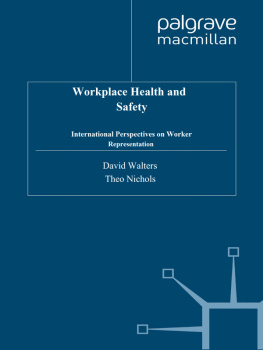The Fissured Workplace
The Fissured Workplace

Why Work Became So Bad for So Many and What Can Be Done to Improve It

DAVID WEIL

Harvard University Press
Cambridge, Massachusetts
London, England
2014
Copyright 2014 by the President and Fellows of Harvard College
All rights reserved
Jacket design: Tim Jones
Jacket photograph: Thinkstock
The Library of Congress has cataloged the printed edition as follows:
Weil, David, 1961
The fissured workplace : why work became so bad for so many and what can be done to improve it / David Weil.
pages cm
Includes bibliographical references and index.
ISBN 978-0-674-72544-7 (alk. paper)
1. LaborUnited States. 2. Industrial relationsUnited States. 3. Manpower planningUnited States. 4. Quality of work lifeUnited States. I. Title.
HD8066.W44 2014
331.20973dc23 2013017888
To my familypast, present, and future
Contents
PART I
PART II
PART III
PART I
A maid works at the San Francisco Marriott on Fishermans Wharf. The hotel property is owned by Host Hotels and Resorts Inc., a lodging real estate company. The maid, however, is evaluated and supervised daily and her hours and payroll managed by Crestline Hotels and Resorts Inc., a national third-party hotel management company. Yet she follows daily procedures (and risks losing her job for failure to accomplish them) regarding cleaning, room set-up, overall pace, and quality standards established by Marriott, whose name the property bears.
A cable installer in Dayton, Ohio, works as an independent contractor (in essence a self-employed business provider), paid on a job-by-job basis by Cascom Inc., a cable installation company. Cascoms primary client is the international media giant Time Warner, which owns cable systems across the United States. The cable installer is paid solely on the basis of the job completed and is entitled to no protections normally afforded employees. Yet all installation contracts are supplied solely by Cascom, which also sets the price for jobs and collects payment for them. The installer must wear a shirt with the Cascom logo and can be removed as a contractor at will for not meeting minimum quotas or quality standards, or at the will of the company.
A recent immigrant to the United States and an aspiring entrepreneur in Boston starts a commercial janitorial service by purchasing a franchise from Coverall, one of the largest U.S. companies in this business. He is owner of the Coverall franchise and works long hours, cleaning clients businesses, including a Bank of America branch. He receives his clients from Coverall, which sets the price and quality standards, defines the geographic boundaries of his franchise, and loaned him capital to purchase the franchise. The prevailing market rate for janitorial services set by Coverall barely covers the royalties, loan repayment, and other expenses to the franchisor, the gas and car costs for traveling between clients, and compensation for himself and the people who work with him.
A member of a loading dock crew working in Southern California is paid by Premier Warehousing Ventures LLC (PWV)a company providing temporary workers to other businessesbased on the total time it takes him and members of his crew to load a truck. PWV, in turn, is compensated for the number of trucks loaded by Schneider Logistics, a national logistics and trucking company that manages distribution centers for Walmart. Walmart sets the price, time requirements, and performance standards that are followed by Schneider. Schneider, in turn, structures its contracts with PWV and other labor brokers it uses to provide workers based on those prices and standards and its own profit objectives.
A young Moldovan exchange student works in a Palmyra, Pennsylvania, shipping facility packing chocolates exclusively for the Hershey Company. The job was arranged via the J-1 visa program overseen by the State Department to provide international students with cultural opportunities in the United States via a nonprofit organization, the Council for Educational Travel, USA (CETUSA). CETUSA, in turn, set up summer employment for the student and four hundred others with Exel, a company contracted by Hershey to manage its packing facility. Exel in turn hires a labor contractor, SHS OnSite Solutions, to provide workers, including students holding J-1 visas. Students who paid $6,000 to participate in the exchange program are assigned the 10:00 p.m. to 6:00 a.m. shift in the refrigerated facility and are paid a wage of $8.00 an hour, from which rent and other expenses are deducted, leaving little extra for the exchange portion of their experience.
In an earlier era, Marriott, Time Warner, Bank of America, Walmart, and Hershey, as well as other large employers that produced well-known products and services, would likely have directly employed the workers in the above vignettes. Not so now. As major companies have consciously invested in building brands and devoted customers as the cornerstone of their business strategy, they have also shed their role as the direct employer of the people responsible for providing those products and services.
In all of the above cases, the jobs shifted away to be done by separate employers pay low wages; provide limited or often no health care, pension, or other benefits; and offer tenuous job security. Moreover, workers in each case received pay or faced workplace conditions that violated one or more workplace laws. Tudor Ureche, a Moldovan student working in the Hershey packing facility, sent an email to the State Department seeking help [from] the miserable situation in which Ive found myself cought [ sic ], which included lifting 5060-pound boxes in a refrigerated facility on the night shift. Pius Awuah, a resident of Lowell, Massachusetts, put his life savings into a Coverall franchise contract that in many respects was simply paying to be an employee (who was then compensated in violation of minimum wages and overtime standards). And Everardo Carrillo and coworkers at a facility operated by Schneider Logistics were paid in violation of the Fair Labor Standards Act and then fired for stepping forward to complain about those working conditions.
The cases are not exceptional, but rather indicative of practices found in the varied industries depicted above as well as in a growing number of other sectors and occupations. Yet these working conditions are not an inevitable result of the nature of those jobs or of amorphous forces like globalization. They result from a fundamental restructuring of employment in many parts of the economy.
The vignettes reveal a transformation in how business organizes work in ways that are invisible to most of us as consumers. We walk into a Marriott and assume that the people who greet us at the front desk or who clean our rooms each day are employees of that venerable brand (as their uniforms imply). We greet the technicians sent to our home to fix our cable, not even questioning whether they work for the media company to whom we pay our bills. In short, we assume that the companies who invest millions of dollars to convince us of the benefits of buying products under their retail nameplate or to purchase the unique services they offer also undertake the operations needed to produce themincluding acting as the employer of all the interconnected people who make their businesses possible.
Next page

